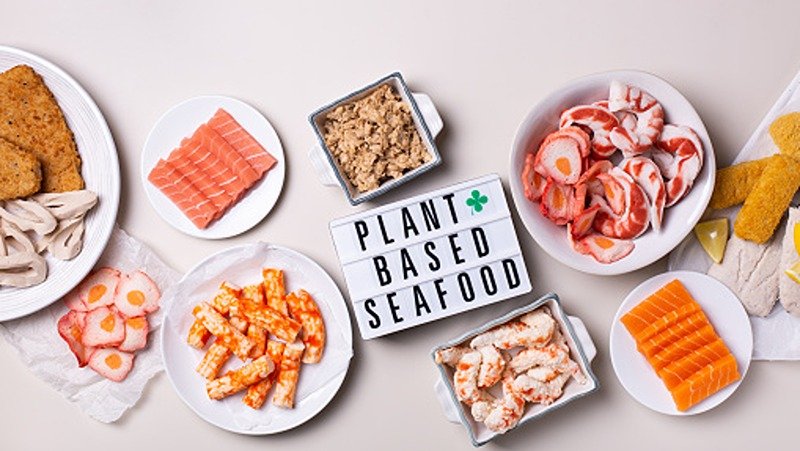The global shift towards plant-based diets has given rise to a new culinary frontier: plant-based seafood. As more people seek sustainable and ethical food choices, innovative alternatives to traditional seafood are making waves in the market. These plant-based options, which include creative uses of carrots, trumpet mushrooms, and konjac root, offer a delicious and environmentally friendly solution for those looking to reduce or eliminate seafood from their diets.
The Rise of Plant-Based Seafood

The plant-based movement has largely been driven by concerns over health, sustainability, and animal welfare. Traditional seafood production often involves overfishing, habitat destruction, and high levels of pollutants and microplastics. In contrast, plant-based seafood offers a way to enjoy the flavors and textures of the ocean without the environmental toll.
Brands like Good Catch, Ocean Hugger Foods, and Sophie’s Kitchen are leading the charge, creating products that mimic the taste and texture of fish, shrimp, and crab using plants. These companies use ingredients such as legumes, seaweed, and algae to replicate the unique qualities of seafood.
Innovative Ingredients and Techniques

- Carrots for Lox: One of the most creative plant-based seafood innovations involves using carrots to make a lox substitute. By thinly slicing carrots and marinating them in a blend of liquid smoke, soy sauce, and other seasonings, the result is a smoky, flavorful alternative that closely mimics traditional salmon lox. This option is not only delicious but also rich in beta-carotene and other nutrients.
- Trumpet Mushrooms for Scallops: Trumpet mushrooms, also known as king oyster mushrooms, have a firm texture that makes them an excellent stand-in for scallops. When sliced into rounds and cooked with a bit of seasoning, they develop a similar texture and taste. This approach offers a savory, umami-rich experience that can be used in various dishes, from pasta to stir-fries.
- Konjac for Sushi and Poke: Konjac, a root vegetable popular in Asian cuisine, is being used to create plant-based sushi and poke bowls. Its neutral flavor and gelatinous texture make it a versatile ingredient that can absorb the flavors of marinades and seasonings, providing a convincing alternative to raw fish. Konjac is also low in calories and high in fiber, making it a healthy choice.
Health and Environmental Benefits

Plant-based seafood offers numerous health benefits. Unlike traditional seafood, which can contain high levels of mercury and other contaminants, plant-based alternatives are free from these toxins. They are also often lower in saturated fats and higher in beneficial nutrients such as fiber, vitamins, and antioxidants.
From an environmental perspective, the benefits are significant. Plant-based seafood requires fewer natural resources, such as water and feed, compared to fish farming and commercial fishing. Additionally, these alternatives help reduce the pressure on overfished species and protect marine ecosystems from destructive fishing practices.
Market Growth and Consumer Acceptance

The plant-based seafood market is rapidly growing, with more products hitting the shelves and gaining acceptance among consumers. According to a report by the Good Food Institute, the plant-based seafood sector saw a 23% increase in sales in 2021, reflecting a rising demand for sustainable and ethical food options.
Consumer acceptance is also on the rise, driven by the improved taste and texture of plant-based seafood products. Advances in food technology and culinary techniques have made these alternatives more appealing, even to those who are not strictly vegetarian or vegan.
Conclusion
Plant-based seafood represents an exciting and innovative frontier in the plant-based movement. With options like carrot lox, trumpet mushroom scallops, and konjac sushi, these alternatives provide delicious and sustainable choices for consumers looking to reduce their environmental footprint and make healthier food decisions. As technology and culinary creativity continue to evolve, the future of plant-based seafood looks promising, offering a tasty and eco-friendly way to enjoy the flavors of the ocean without compromising on sustainability.
